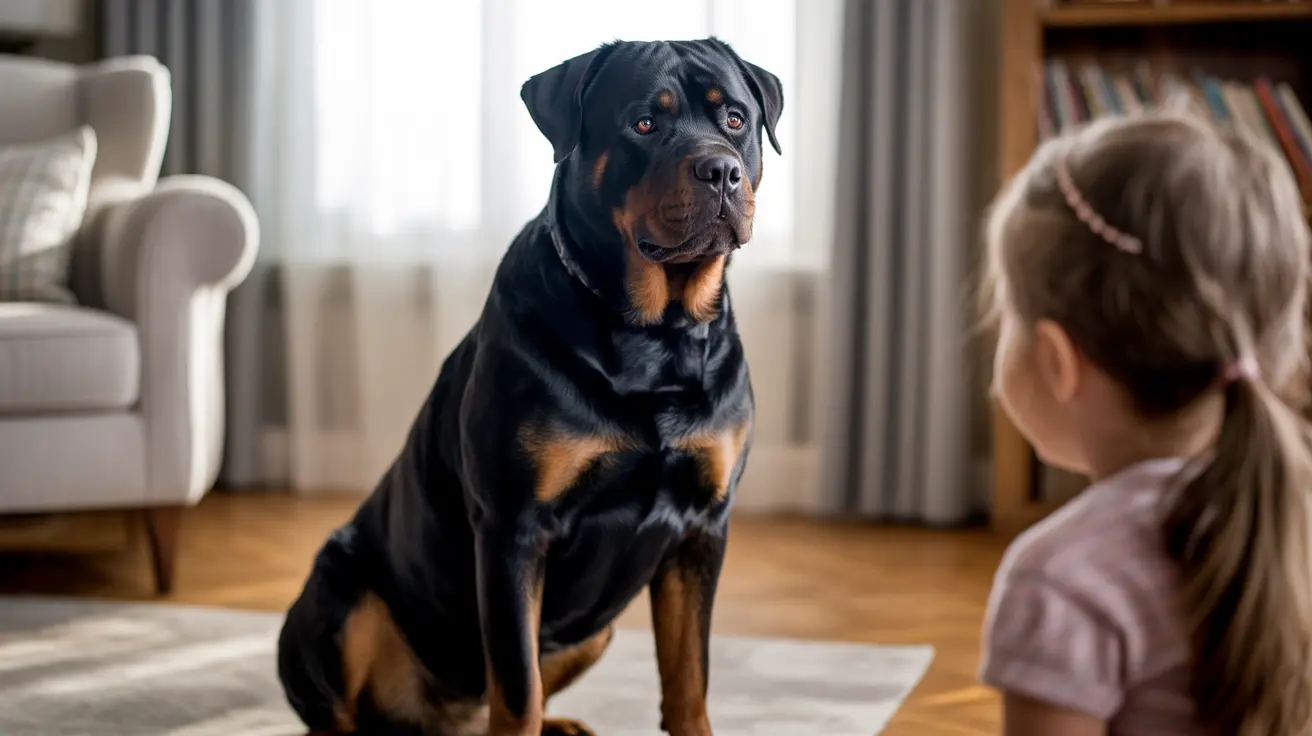Have you ever wondered how your furry friend perceives you? The question of whether dogs think humans are dogs has fascinated pet owners and scientists alike. Through decades of research and behavioral studies, we've gained fascinating insights into how our canine companions view us and their place in our families.
Let's explore the complex world of canine cognition and discover the truth about how dogs perceive their human family members.
The Science Behind Dog-Human Recognition
Scientific evidence clearly shows that dogs do not think humans are dogs. Their highly developed senses, particularly their exceptional sense of smell, allow them to distinguish between species easily. Dogs can detect unique human scents and pheromones that are distinctly different from those of other dogs.
Research using advanced imaging techniques has revealed that dogs' brains process human scents differently from canine ones, showing specific activation patterns when they smell their owners versus other dogs or strangers.
How Dogs Actually Perceive Humans
Rather than viewing humans as fellow dogs, our canine companions recognize us as unique social partners. They form complex emotional bonds with us that are different from their relationships with other dogs. This special connection is evidenced by the release of oxytocin—often called the "love hormone"—when dogs interact with their human family members.
Dogs have evolved alongside humans for over 30,000 years, developing an extraordinary ability to read our body language, facial expressions, and vocal tones. This deep understanding allows them to form meaningful relationships with us while still recognizing that we're different from their canine counterparts.
The Role of Evolution in Dog-Human Relationships
The domestication process has played a crucial role in shaping how dogs interact with humans. Through selective breeding and natural adaptation, dogs have developed specific social-cognitive abilities that help them communicate and bond with humans effectively.
These evolutionary changes have resulted in dogs that are uniquely attuned to human social cues, more so than even their closest wild relatives, wolves. This adaptation has created a species that excels at understanding and responding to human behavior while maintaining their distinct canine identity.
Social Bonding and Family Integration
While dogs don't mistake humans for other dogs, they do integrate seamlessly into human family structures. They often view their human family members as pack leaders or parental figures, forming strong emotional attachments that mirror those found in wolf packs.
This social flexibility allows dogs to maintain both their canine nature and their role as beloved family members, creating a unique interspecies relationship that benefits both humans and dogs.
Frequently Asked Questions
Do dogs think humans are actually dogs or a different species?
Dogs can clearly distinguish between humans and other dogs. Their sophisticated senses and cognitive abilities allow them to recognize humans as a distinct species.
How do dogs perceive their human family members compared to other dogs?
Dogs view humans as unique social partners and often as leadership figures. Their relationship with humans is different from their interactions with other dogs, characterized by stronger emotional dependence and social bonding.
Can dogs recognize individual humans by scent and behavior?
Yes, dogs excel at recognizing individual humans through both scent and behavioral cues. They can distinguish between familiar and unfamiliar humans with remarkable accuracy.
Why do dogs look to humans for comfort and guidance in stressful situations?
Dogs seek comfort from humans due to their deep social bonds and trust. This behavior stems from both their evolutionary history with humans and their individual experiences with their caregivers.
Do dogs believe they are human or simply see themselves as dogs?
There's no evidence suggesting dogs think they're human. While they may not have the same sense of self-awareness as humans, they likely recognize themselves as distinct from both humans and other animals.
Conclusion
While dogs don't think humans are dogs, they've developed a remarkable ability to form meaningful relationships with us while maintaining their unique canine identity. This special bond, shaped by evolution and strengthened through daily interactions, creates the foundation for the extraordinary human-animal connection we share with our four-legged friends.
Understanding how dogs perceive us can help strengthen our relationships with them and provide better care for their physical and emotional needs. After all, it's this mutual understanding and respect that makes the dog-human bond so special.






